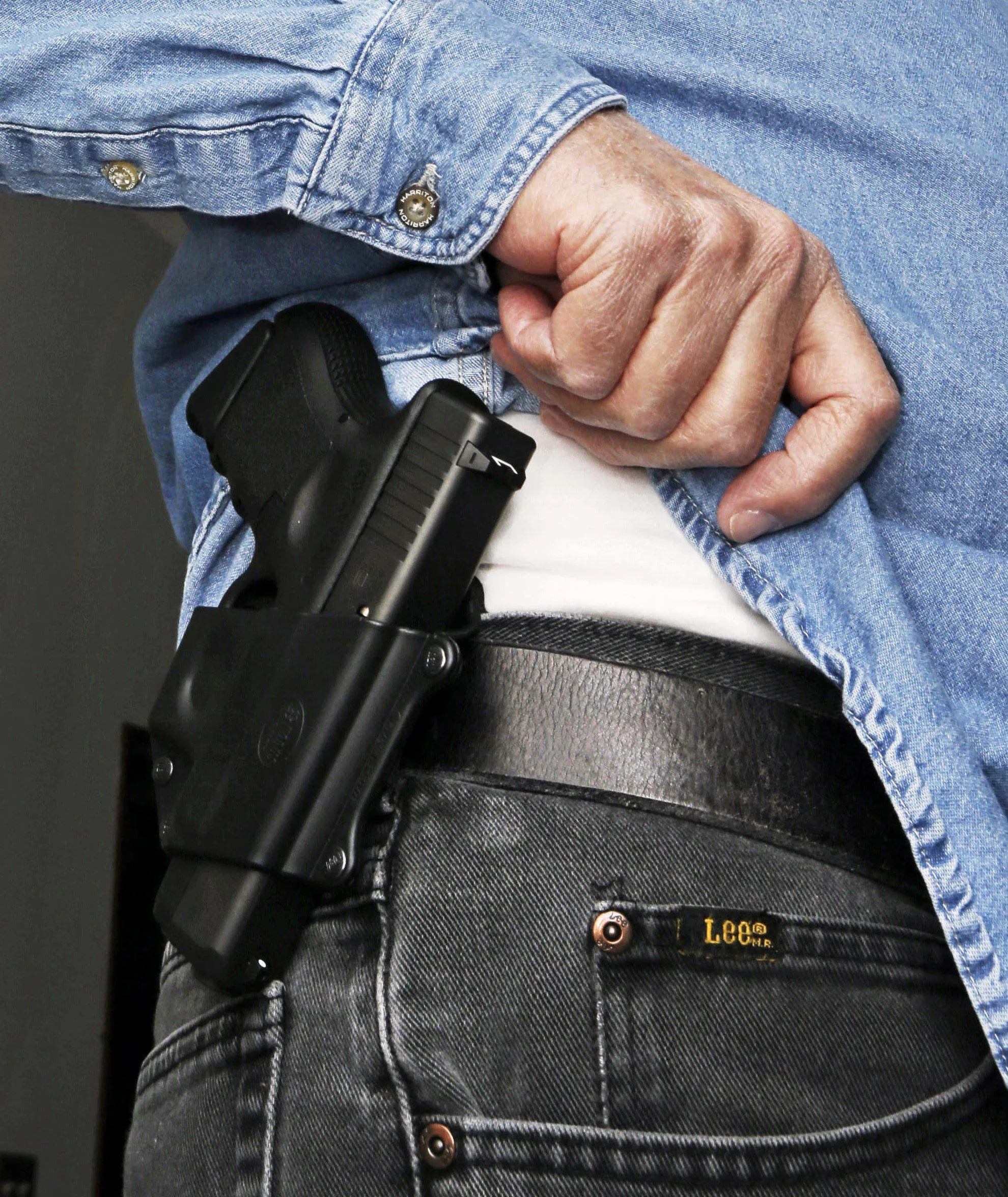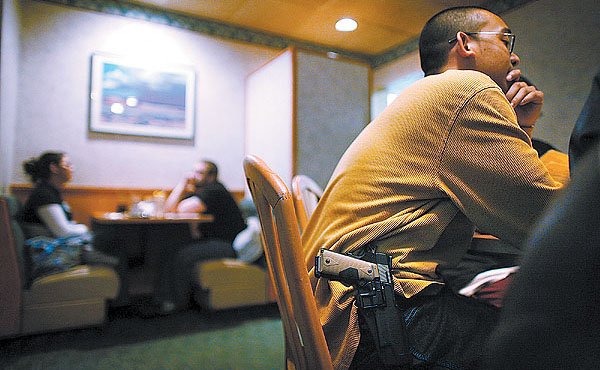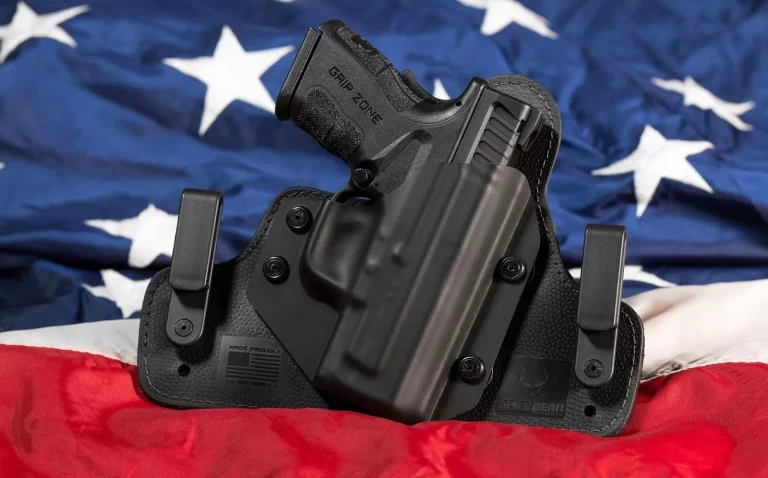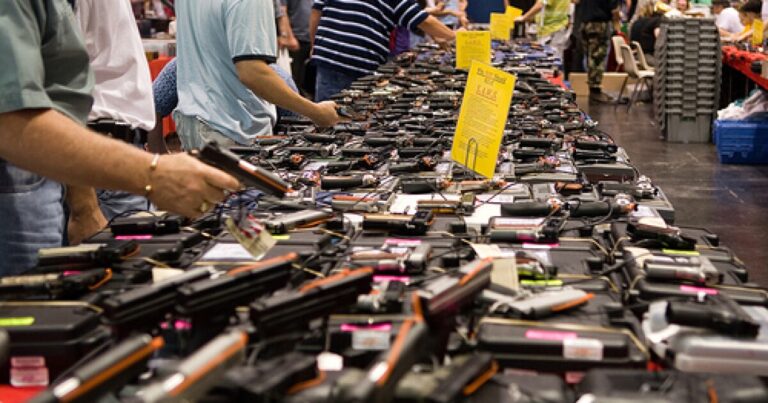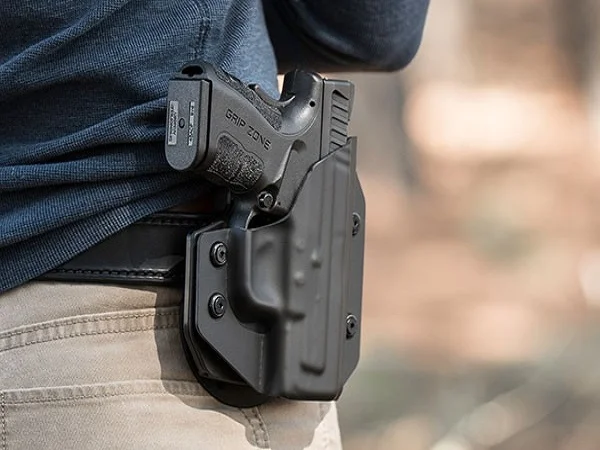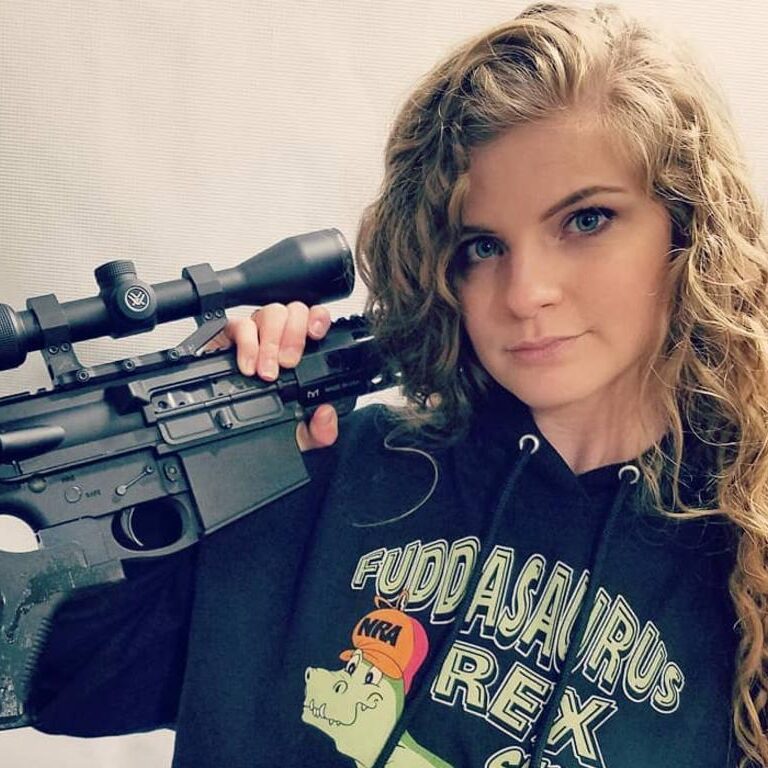Kansas Open Carry Laws: Rights & Regulations
Kansas allows the use of firearms within its borders, but there are strict gun laws in place to govern how and where civilians can use them. Understanding these laws is essential to avoid violations that could lead to prosecution. In this article, we will delve into the details of Kansas open carry laws and explore the regulations surrounding different types of firearms.
Kansas Gun Law Summary
Kansas operates as a shall-issue state, where concealed carry permits are issued and open carry is also recognized. The state patrol agency supervises the application process for the permit. Fortunately, you do not need a purchase permit to buy firearms in Kansas.
However, you must undergo a criminal record background check, except when purchasing from a private dealer or if you already possess a concealed carry permit. The minimum age requirement for open carry is eighteen years old, and for concealed carry, it is twenty-one, the same age requirement for applying for a state permit. The concealed carry permit is only available to residents and military members stationed in the state, but non-residents can still conceal and open carry due to the state’s permitless policy.
Is Open Carry Legal In Kansas?
Yes, open carry is legal in Kansas as long as the individual is eighteen years old or above and not prohibited from using firearms in the state. However, there are certain location restrictions for the possession of firearms as well as open and concealed carry.
Open Carry Laws In Kansas
Kansas is considered a permissive open-carry state, meaning that you do not need a permit to open-carry firearms. However, there are still some restrictions regarding the types of firearms allowed in the state. Machine guns and semi-automatic firearms are generally not allowed for civilians, except for law enforcement officers, military members, and peace officers.
Additionally, antique firearms, which are those manufactured before nineteen-eighteen, are prohibited. This includes devices such as flintlocks, ignition systems, percussion caps, matchlocks, or anything resembling them. Ammunition manufactured before nineteen-eighteen and no longer available for commercial sale is also not allowed.
Kansas Open Gun Law Quick View
| Law/Policy | Long Guns | Handguns | Comments |
|---|---|---|---|
| State permit for open carry | No | No | You do not need a state permit to open carry firearms in Kansas. |
| Firearm registrations for open carry | No | No | Kansas gun statutes do not require the registration of firearms in the state. |
| Assault weapon for open carry | No | No | Kansas bans the possession of assault firearms like machine guns and semi-automatic guns. Also, plastic-coated ammunition is not allowed. |
| Magazine limit | No | No | There are no limits to the number of rounds for a firearm magazine in Kansas. |
| License for the owner of a firearm | Not required | Not required | There are licenses issued for owning firearms in Kansas. |
| Red flag law | No | No | Kansas gun law does not recognize red flag law or a court issuing restriction and protection orders after receiving a petition against someone. |
| Castle doctrine law | Yes | Yes | Kansas prohibits the possession, open, and concealed carry of firearms and other weapons in schools, colleges, and university campuses. |
| Background check for private dealers | No | No | NICS criminal record background check is not required for private dealers of firearms in the state, as well as for the transfer of firearms between family members. |
| Preemption | Yes | Yes | Kansas preempts gun laws in local areas of the state. However, municipalities can regulate the use of firearms in state buildings and the issuing of concealed carry permits in their territory. |
| Concealed carry permit | Yes | Yes | You can only conceal carry with a permit issued for this purpose in Kansas. |
| Concealed carry in personal vehicle | Yes | Yes | You can conceal carry in your vehicle as long as you have your permit with you. |
| Open carry in Schools | No | No | Open Carry in Schools |
Where Is It Legal To Open Carry In Kansas?
Kansas does not prohibit open carry in the following areas:
- Restaurants and bars: You can open carry in restaurants and bars unless there is a post prohibiting this or you are under the influence of alcohol.
- Personal vehicle: You can open carry in your car or any other private vehicle.
- Roadside areas: You can open carry in roadside areas as long as you are within the legal age to do so.
- State forests and parks: You can open carry in Kansas parks, forests, and wildlife management areas if you have permission.
- Places of worship: You can open carry in churches, mosques, and synagogues that do not have a post or signage restricting firearms within their premises.
Where Is It Illegal To Open Carry In Kansas?
Kansas gun laws prohibit open carry in the following places:
- Schools: You cannot possess or open carry firearms in schools, colleges, and university premises.
- Government buildings: You cannot open carry in government buildings such as the governor’s residence.
- Courthouses: You cannot open carry in courthouses or during court proceedings in Kansas.
- Private buildings and properties: You cannot open carry or possess firearms in private buildings and properties with signage prohibiting weapons.
- Hospitals: You cannot open carry in state hospitals, mental homes, or any other healthcare center.
- Prisons: You cannot open carry in state prisons, jails, correctional homes, or detention facilities.
- Places of work: You cannot open carry in workplaces with restrictions for firearms possession.
- Under the influence: You cannot open carry or use a firearm while under the influence of alcohol or any other intoxicating substance.
- Prohibited places: You cannot open carry in areas not permitted by federal laws of the USA.
Relevant Open Carry Law And Legislature In Kansas
Here are some additional Kansas gun laws relating to open carry in the state:
- Ammunition Restrictions: Kansas bans the use and sale of plastic-coated ammunition.
- Preemption Laws: Kansas has preemption laws for local areas’ firearm regulations, giving the state government authority over gun laws.
- Brandishing Of Firearms: It is a crime to brandish firearms at another person in Kansas, known as assault.
- Use Of Firearms Under The Influence: Under section twenty-one of the state gun statutes, nobody shall carry or possess a firearm under the influence of alcohol or any other drug in a manner that renders them incapable of safe handling.
- Range Protection Law: A law court cannot sanction a shooting for constituting a nuisance if it complies with all state noise control laws and laws related to firearm operations.
- Hunter Law In Kansas: You can open carry while hunting in Kansas, except during archery hunting, where you can only conceal carry. Harassment of hunters during a legal activity is not allowed.
Conclusion
Understanding Kansas gun laws, particularly those related to open carry and firearm possession, is crucial for all residents and visitors. While Kansas allows open carry without a permit, it’s important to be aware of the location restrictions and comply with all relevant regulations. As a responsible gun owner, familiarizing yourself with these laws will help ensure the safety and well-being of yourself and others.
FAQs;
Q1. Can non-residents open carry in Kansas?
Yes, non-residents can open carry in Kansas due to the state’s permitless policy.
Q2. Are there any restrictions on the types of firearms allowed in Kansas?
Yes, machine guns and semi-automatic firearms are generally not allowed for civilians, except for law enforcement officers, military members, and peace officers.
Q3. Can I open carry in my workplace?
It depends on your workplace’s policy. If there are no restrictions, you may open carry with a valid permit.
Q4. What is Kansas’s stance on assault weapons?
Kansas bans the possession of assault firearms like machine guns and semi-automatic guns for civilians.
Q5. Can I open carry in schools?
No, Kansas prohibits the possession, open, and concealed carry of firearms and other weapons in schools, colleges, and university campuses.
